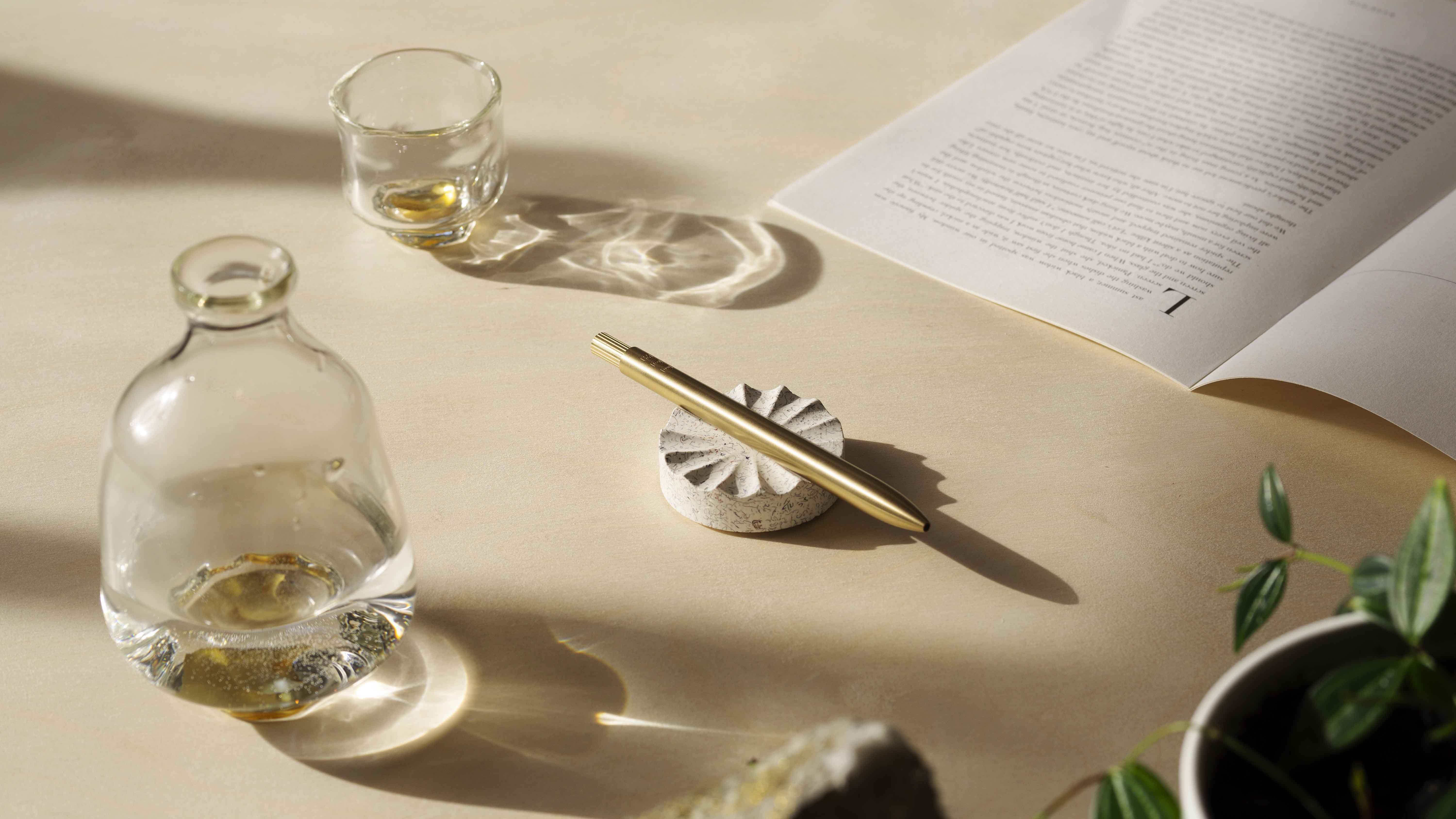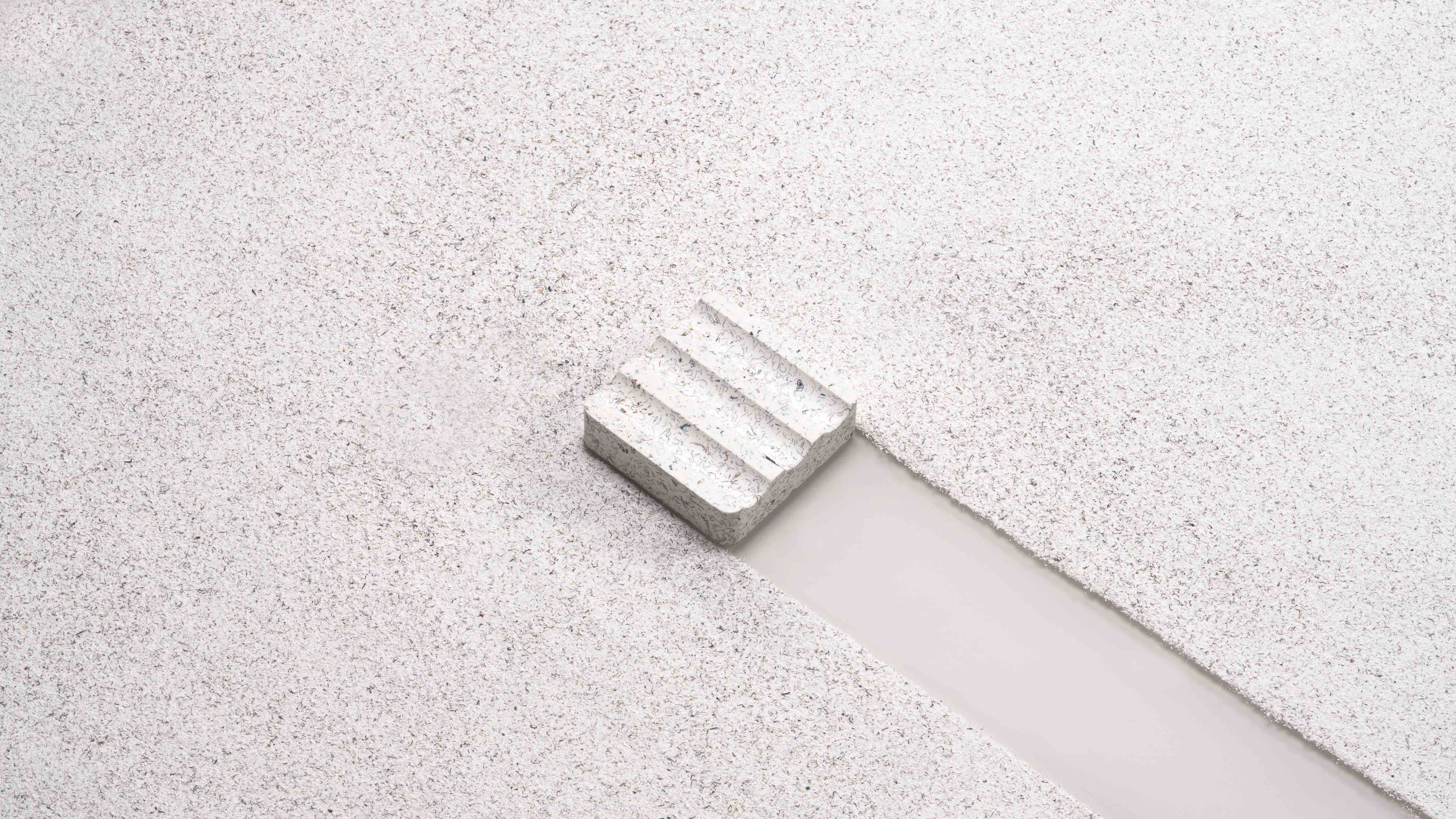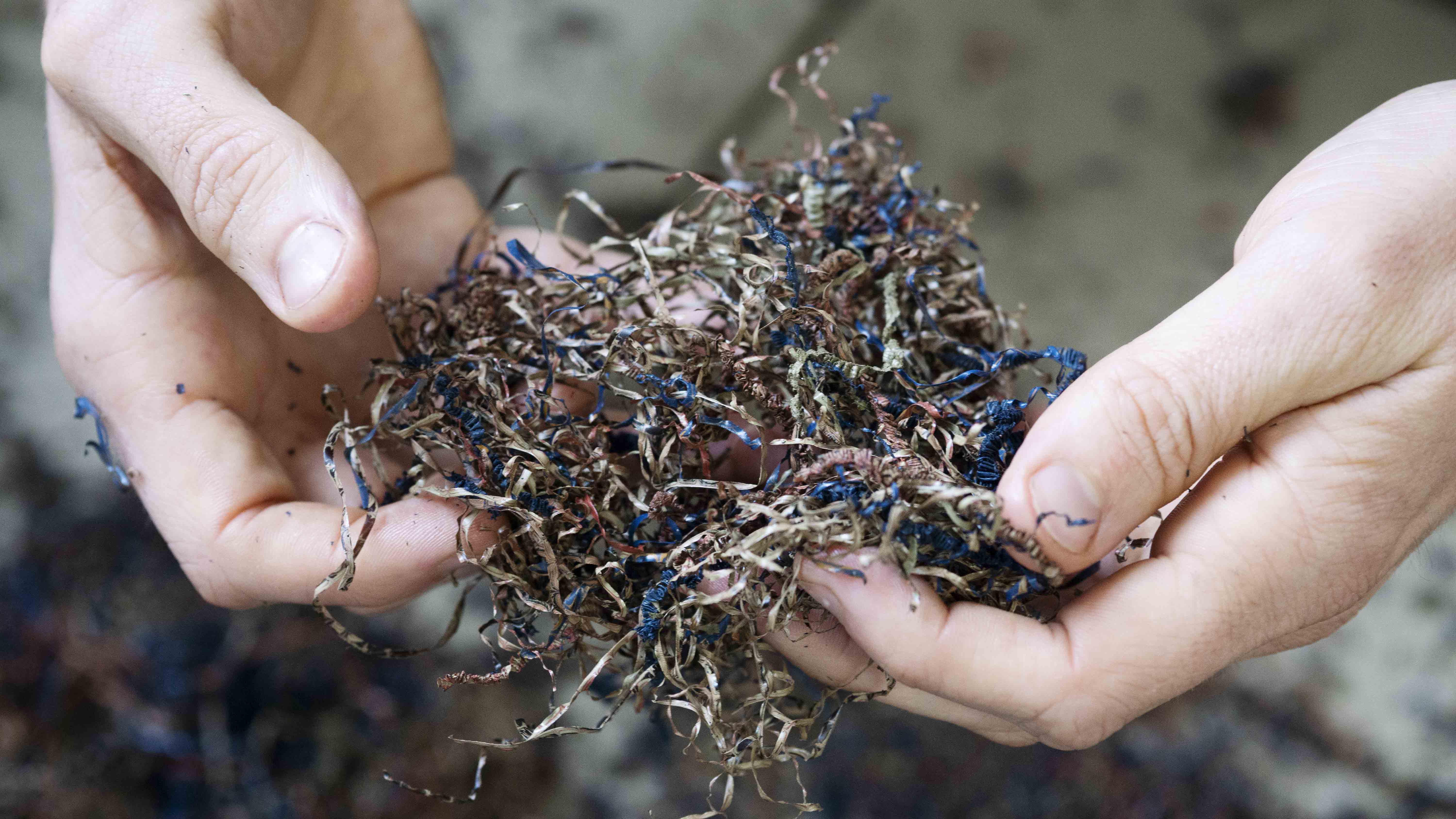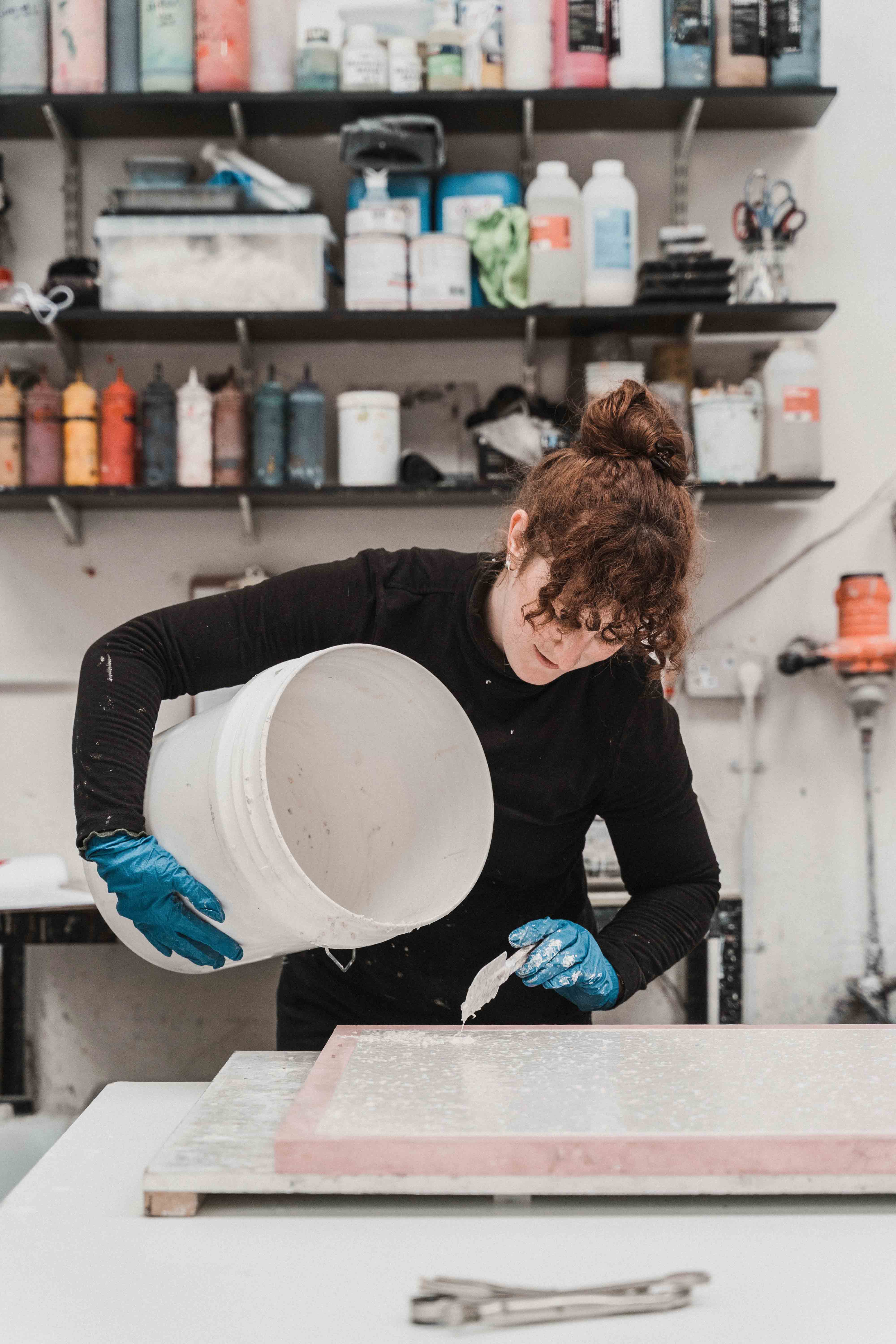Reclaimed materials transformed into terrazzo by Ajoto and Olivia Aspinall
We take a look at how British writing instruments brand Ajoto uses the waste from its pen manufacturing process to create a minimal pen rest, in collaboration with artisan Olivia Aspinall

Receive our daily digest of inspiration, escapism and design stories from around the world direct to your inbox.
You are now subscribed
Your newsletter sign-up was successful
Want to add more newsletters?

Daily (Mon-Sun)
Daily Digest
Sign up for global news and reviews, a Wallpaper* take on architecture, design, art & culture, fashion & beauty, travel, tech, watches & jewellery and more.

Monthly, coming soon
The Rundown
A design-minded take on the world of style from Wallpaper* fashion features editor Jack Moss, from global runway shows to insider news and emerging trends.

Monthly, coming soon
The Design File
A closer look at the people and places shaping design, from inspiring interiors to exceptional products, in an expert edit by Wallpaper* global design director Hugo Macdonald.
Pen usage (and penmanship) may be rare sights these days, but for the faithful, the writing implements made by Ajoto, a Manchester-based pen company established in 2011, continues to prove that writing is far from dead. Famed for its timeless designs that combine precision manufacturing with the warmth of craft, Ajoto’s pens range from minimalist brass and silver specimens, which naturally patina over time, to limited editions that brandish more ornamentation, or are made in ebonite, a vulcanised rubber material, that are always produced in small batches and designed to last a lifetime.
Off the back of developing its ebonite writing tools (a material that is still the top choice of fine pen makers around the world), Ajoto’s founder Chris Holden sought to recycle previously non-reclaimable waste materials. The result is an elegant duo of pen rests, created in collaboration with Nottingham artisan Olivia Aspinall, who specialises in bespoke surface and terrazzo design.
Ajoto pen rests: recycled materials transformed into products

One of the two pen-rests made by Ajoto
‘The Ebonite we use is produced by the combination of two core ingredients: natural rubber latex and sulphur. The mixture of materials passes through multiple production stages before it becomes the ebonite material that we can precision-machine,’ explains Holden. ‘Once the machining is finished we are left with a beautiful pen, but also boxes of curly machining swarf. Unlike metal, which can be easily recycled, the ebonite would need to be processed further to fully remove contaminants, and shipped to Germany. Overall this has a very limited environmental or financial benefit, so this prompted us to set out and find alternative ways to repurpose this material and potentially produce a range of products that would be both practical and beautiful.’

The ‘curly machining swarf’ resulting from the pen manufacturing process
‘The main challenge with the development process has been achieving the correct balance of ebonite to the binder,’ adds Aspinall, who completed a degree in textiles at London’s Central Saint Martins. ‘The challenge has been to make a beautiful surface design that is also strong, whilst not overloading the background material. This unique material is made in a similar way as regular terrazzo, but instead of using terrazzo chips, marble or granite, they re-purpose small ebonite shaving from the Ajoto Ebonite collection and casting with an eco-resin.’
Once the material was made, it was another challenge to cut and sand it. Here, Ajoto turned to Lazerian Studio, a multidisciplinary creative studio and fellow Mancunian. ‘The whole collection is produced in the United Kingdom,’ states Holden. ‘The manufacturing process is the result of modern craft; combining manual and traditional processes with state of the art machinery. We worked alongside Lazerian Studio to carry out the precision machining process. Liam is an experimental artist and designer that fully understands the project and worked with us to precisely carve each rest from our experimental material.’

Olivia Aspinall creating the terrazzo-like material in her studio
Once machined, the pen rests are hand-finished and waxed in Nottingham before being given a naturally vegetable-tanned leather base at Ajoto’s studio workshop. Available in two distinctive designs; a crown that allows a pen to be held in multiple positions, and a grooved triple, which can accommodate three pens, the pen holders provide an elegant resting place before its user makes their next mark.
INFORMATION
Receive our daily digest of inspiration, escapism and design stories from around the world direct to your inbox.
Pei-Ru Keh is a former US Editor at Wallpaper*. Born and raised in Singapore, she has been a New Yorker since 2013. Pei-Ru held various titles at Wallpaper* between 2007 and 2023. She reports on design, tech, art, architecture, fashion, beauty and lifestyle happenings in the United States, both in print and digitally. Pei-Ru took a key role in championing diversity and representation within Wallpaper's content pillars, actively seeking out stories that reflect a wide range of perspectives. She lives in Brooklyn with her husband and two children, and is currently learning how to drive.